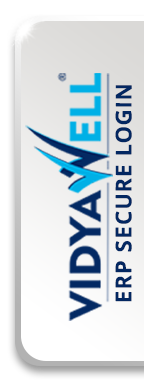Human Physiology
Objective
This course provides a fundamental understanding of human physiology, covering body systems, homeostasis, neural and hormonal regulation, circulation, gas exchange, digestion, excretion, and reproduction. It equips learners with essential knowledge for careers in healthcare, biomedical sciences, and allied fields.
Target Audience
- Undergraduate and graduate students in biology, physiology, medicine, or allied health sciences.
- Aspiring medical professionals, nurses, physiotherapists, and healthcare workers.
- Competitive exam aspirants preparing for medical, nursing, or paramedical entrance tests.
Duration of Course
4 weeks
Credit Weight
2 Credits
Certificate
A certificate will be awarded upon successful completion of the course, validating thepractical knowledge and skills acquired.
Career Advancement
- Enhances foundational knowledge for medical and healthcare careers.
- Prepares students for advanced studies in biomedical sciences, pharmacology, and clinical research.
- Supports careers in healthcare industries such as diagnostics, pharmaceuticals, and hospital administration.
- Beneficial for fitness trainers, dieticians, and wellness consultants focusing on human body functions.
- Strengthens the academic base for competitive exams like NEET, AIIMS, and paramedical entrance tests.
Module - 1 : Introduction to Human Physiology
Unit 1 Overview of Cells, Tissues, and Organs
- Cell structure and function
- Types of tissues (epithelial, connective, muscle, nervous)
- Organization of organs and organ systems
- Definition and importance of homeostasis
- Negative and positive feedback loops
- Examples (body temperature regulation, blood glucose control)
- Passive transport (diffusion, osmosis, facilitated diffusion)
- Active transport (sodium-potassium pump, endocytosis, exocytosis)
- Role of transport in maintaining cellular function
Module - 2 Nervous System and Endocrine System
Unit 1 Structure and Function of Neurons
- Neuron anatomy (dendrites, axon, synapse)
- Types of neurons (sensory, motor, interneurons)
- Nerve impulse transmission and synaptic communication
- Central nervous system (brain, spinal cord)
- Peripheral nervous system (somatic and autonomic divisions)
- Reflex arc and neural pathways
- Major endocrine glands and their functions
- Hormones and their mechanisms of action
- Endocrine feedback systems (thyroid regulation, blood sugar control)
Module - 3 Cardiovascular System and Respiratory System
Unit 1 Anatomy of the Heart and Blood Vessels
- Structure and function of the heart
- Blood vessels (arteries, veins, capillaries)
- Blood composition and its role in transport
- Cardiac cycle and heart sounds
- Regulation of blood pressure (baroreceptors, hormones)
- Systemic and pulmonary circulation
- Anatomy of the respiratory system
- Mechanism of breathing (inhalation and exhalation)
- Oxygen and carbon dioxide transport in blood
Module - 4 Digestive, Renal, and Reproductive Systems
Unit 1 Digestive Processes and Nutrient Absorption
- Anatomy of the digestive tract
- Digestive enzymes and their roles
- Nutrient absorption in the small intestine
- Structure of the nephron
- Processes of filtration, reabsorption, and secretion
- Role of kidneys in fluid and electrolyte balance
- Male reproductive system (testes, sperm production, hormones)
- Female reproductive system (ovaries, menstrual cycle, hormones)
- Fertilization, pregnancy, and reproductive health
Learning Management System (LMS) Panel:
- Lifetime Access: Students can log in securely at any time.
Course Features
- Live Online Classes: Engage in real-time sessions with instructors
- Interactive Sessions: Participate in discussions and Q&A to enhance learning.
- Practical Sessions: Apply concepts through hands-on activities.
- Class Recordings: Access recordings of live classes for review at your convenience
- Self-Learning Videos: Benefit from pre-recorded videos to reinforce learning.
- Digital Course Materials: Receive a soft copy of all course content.
- Assignments: Complete practical assignments to apply your knowledge.
- Practice Assessments: Test your understanding with practice quizzes.
- Final Assessment: Evaluate your overall progress with a comprehensive exam.





